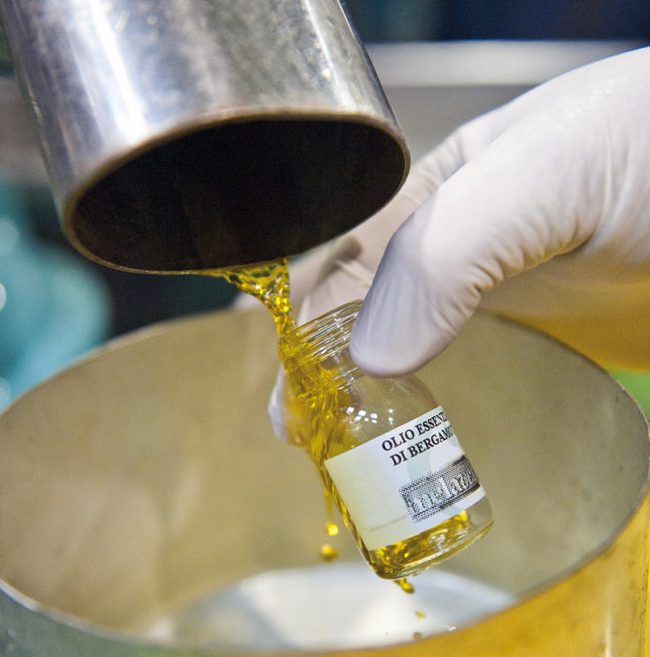
The PDO and the protection consortium

It is produced almost exclusively in the coastal area
As we have already noted, Bergamot production is limited almost exclusively to a coastal strip in the province of Reggio Calabria, in the extreme south of Italy, and this is how it is identified in the E.U. decree awarding it P.D.O. (Protected Designation of Origin) status. Ever since 1704 and the creation of the so-called “aqua mirabilis”, a toilet water later to become known as “eau de Cologne”, the product has been principally used in the perfume and cosmetics industries. However, in recent times, Bergamot has also found increasing use in the pharmaceutical sector, thanks to its antibacterial, antiseptic, antiviral and antifungal properties.

In 2001, a European Union decree awarded P.D.O. (protected designation of origin) status to “Bergamotto di Reggio Calabria – Olio essenziale”. This decree contains a series of guidelines regarding the cultivation of the fruit, the process of extracting the essential oil and its marketing.
It also names the official body responsible for checking and certifying the quality and authenticity of the product. Indeed, a series of specific tests have to be carried out on the “Bergamotto di Reggio Calabria – Olio essenziale” before it can be formally certified and marketed.
The “Consorzio di Tutela del Bergamotto di Reggio Calabria” (Consortium for the Protection of the Bergamot of Reggio Calabria) was established in 2007, thanks to the tenacity of a group of wholesale Bergamot producers, plus various processors and packagers. This group, headed by their lawyer, Ezio Pizzi, managed to gain recognition for their Consortium by the Ministry of Agriculture the following year.
Only a year after its foundation, the “Consorzio di Tutela del Bergamotto” managed to fulfil the criteria required of these protective Consortiums by law. The requirements involve:
• Ensuring that the product is made according to the strict rules set out in the production guidelines.
• Protecting the product from imitations.
• Promoting and spreading awareness of the product and its consumption.
• Enhancing and improving the quality of the product to safeguard its typical character and special features.
These Consortiums are also entrusted with the important and sensitive task of managing the brands and labels which indicate conformity with the P.D.O. regulations. The law therefore entrusts the Consortiums with overseeing the production and marketing of the product, and each individual Consortium employs supervisory agents to carry out this task. They take the utmost care to protect the product from any attempts at counterfeiting or adulteration which (together with price instability) have unfortunately been the cause of disaffection on the part of the final consumer.
